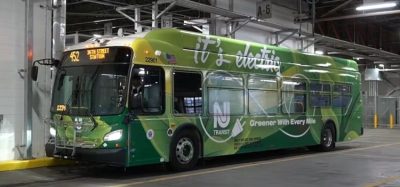UK ‘Connectivity Fund’ needed to reverse significant cuts in bus funding
- Like
- Digg
- Del
- Tumblr
- VKontakte
- Buffer
- Love This
- Odnoklassniki
- Meneame
- Blogger
- Amazon
- Yahoo Mail
- Gmail
- AOL
- Newsvine
- HackerNews
- Evernote
- MySpace
- Mail.ru
- Viadeo
- Line
- Comments
- Yummly
- SMS
- Viber
- Telegram
- Subscribe
- Skype
- Facebook Messenger
- Kakao
- LiveJournal
- Yammer
- Edgar
- Fintel
- Mix
- Instapaper
- Copy Link
Posted: 20 March 2019 | Intelligent Transport | No comments yet
A new report from the Urban Transport Group has shown that an investment in bus services is key to achieving a wide range of policy objectives across Government.


The report, ‘The cross-sector benefits of backing the bus’, highlights how the bus plays a key role in achieving 29 policy objectives for 12 of the 25 departments in Whitehall, from the Treasury’s goal of increasing employment and productivity, through to the Ministry of Housing, Communities and Local Government’s aim to create socially and economically stronger and more confident communities.
The report finds that the way in which bus services are funded is mired in complexity, with no oversight within Whitehall of how the various funding streams from different Government departments impact on bus services overall. It also shows that all the main forms of funding for bus services are under severe pressure – in particular those that come indirectly from the Ministry for Housing, Communities and Local Government which support bus services that bus companies will not provide on a commercial basis.
The report suggests that the wide-ranging benefits bus services bring are ‘at risk’ if the current complex and declining funding regime for buses continues. The consequences include:
- Shrinking labour markets with fewer people able to access areas of employment, especially in outlying areas
- Skills and apprenticeships will be hit because of reduced access to further education
- High street regeneration plans will be damaged because of reduced access to town centres
- Increased pressure on congested road networks as some bus users transfer to the car
- Public health impacts as more people use a car for more trips and people become more isolated in their own homes through lack of public transport.
The report concludes that: ‘The bus is one of the biggest bargains available to transport policy makers in achieving a very broad range of transport, economic, environmental and social objectives in a cost effective way and in a timely fashion. Public funding for bus services reduces congestion for all road users, connects people to jobs, gets young people into education and training, and lifts people out of isolation. The long term costs to budgets across Whitehall of a declining bus network are far greater than ensuring a funding system for bus services that works.’
The report calls for a new ‘Connectivity Fund’ – which would bring together existing bus funding (known as the Bus Service Operators Grant or BSOG) together with funding from other Government Departments into a significantly enhanced and ring-fenced pot for local government to support bus services.
Mick Noone, Director of Integrated Transport at Merseytravel and Urban Transport Group’s lead Board member for bus, said: “The bus is not just a mode of transport – it is an enabler for millions of people across the country to access jobs, education and social opportunities, in a way that positively contributes to the economy, public health and the environment. The forthcoming Spending Review is expected to take a fresh look at how the Government provides support for bus services. We hope this report will be useful to the Treasury in taking a wider view of the considerable benefits which high quality bus services bring, as well as setting out the case for a simplified and enhanced funding regime which better recognises these cross-Whitehall benefits.”
Related modes
Bus & Coach
Related cities
UK
Related organisations
Merseytravel, Urban Transport Group (UTG)
Related people
Mick Noone








